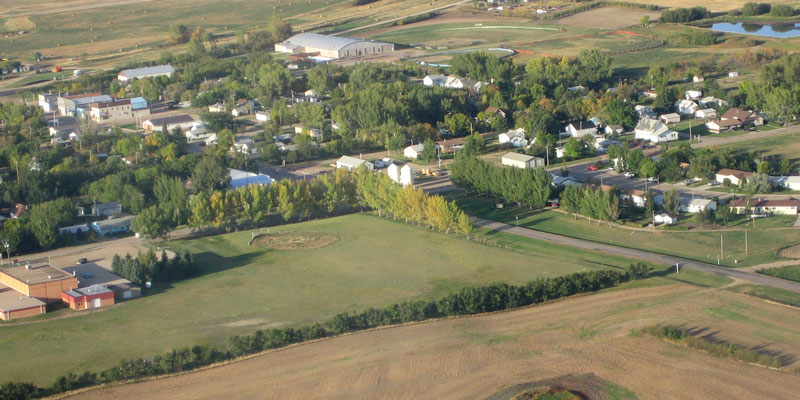The Great Lakes Futures Project Action Plan for Sustainability
Principal Investigator - Irena Creed, Professor, Western University, 2013 - 2015

Challenge
Recognizing barriers that prevent sustainable watershed management within the Great Lakes-St. Lawrence River Basin, decision-makers and end users have expressed the need for a common sustainability vision and strategy. Policy gaps arise, in large part, because sectors – science, policy, government, non-government organizations, and industry – tend to operate independently, which prevents the development of an inclusive vision and strategic plan. A multi-stakeholder, multi-sector strategy is needed to achieve Basin-wide sustainability.
This project proposes to build on the strong foundation of the Great Lakes Futures Project (GLFP) by targeting the science-policy interface, using insights into the consequences of current policy decisions to work with stakeholders and develop strategies that will ensure the future sustainability of the Basin. In a comprehensive and inclusive way, the proposed project will identify barriers and develop a strategy to break down the science-policy interface barriers that exist by engaging diverse stakeholder groups and generating an action plan to aid in policy development and reform.
The proposed study builds upon the following initial project:
- Project (2011-2013): Great Lakes Futures Project,Creed (Western University), Krantzberg (McMaster University), Friedman (State University at New York Buffalo), and Scavia (University of Michigan)
The objective of the GFLP was to understand and inform a trans-disciplinary, socio-ecologically sustainable future for the Great Lakes-St. Lawrence River Basin using scenario analysis to recommend long-term policy, program and research priorities.
Project
Despite years of policy initiatives within the Great Lakes-St. Lawrence River Basin, there is a growing consensus among Basin stakeholders that policy gaps exist and that these gaps are barriers to sustainably managing the watershed. This project will be a catalyst for policy reform to enable government decision-makers and end-users to address the barriers to sustainable management in the Basin revealed by the Great Lakes Futures Project. Researchers will work closely with stakeholders using established methodologies to gain clarity on multiple perspectives around a complex issue to be determined in consultation with stakeholders. Example issues include nutrient loading and the nearshore framework, decreasing water levels, and energy demands, among others. Researchers will then present Basin policy threats and opportunities, identifying areas of agreement or disagreement, to reach consensus on policy reform and implementation of these reform measures for moving forward.
Researchers will use a systematic approach involving a series of surveys (questionnaires), interviews, and focus groups to collect data, i.e., expert opinions, and to organize the range of views on Great Lakes-St. Lawrence River Basin Policy into an orderly knowledge base. Comparative case studies also will be conducted to understand decision structures that lead to consensus or compromise in difficult policy discussions. This will then be used to empirically measure the strengths and limitations of the policy and shape recommendations for future consideration.
The bi-national research team will work closely with stakeholders to propose indicators of sustainability developed for major watersheds around the globe, using the Great Lakes Basin as the model, that will measure uptake and consequences of policy recommendations and thereby enable learning to inform adaptive management..
Outputs
The anticipated outputs of the project will include:
- A policy brief with recommendations to reconcile policy gaps on an identified issue
- Two stakeholder workshops to identify and integrate the needs of decision-makers and end-users
- Two to four public forums to disseminate project findings and recommendations to stakeholders
- Peer-reviewed publications on policy assessment and recommendations
- Policy indicators that will guide future research to measure the uptake and consequences of policy recommendations within the Basin, with applicability to basins around the world
- Online resources to facilitate the development of a community of practice, such as a website, an online blog soliciting project feedback, a bi-monthly newsletter and use of social media to disseminate knowledge
Outcomes
Proposed outcomes of the project include:
- Increased knowledge and awareness related to the sustainability of the Great Lakes-St. Lawrence River Basin
- Improved understanding of current gaps within the Great Lakes-St. Lawrence River policies
- Increased capacity for decision makers, end-users and partners to overcome identified gaps
- Increased capacity for decision makers, end users and partners to monitor policy effectiveness using the developed policy indicators
These outcomes will contribute to the long term goal of ensuring effective, sustainable policy in the Great Lakes-St. Lawrence River Basin into the future.




